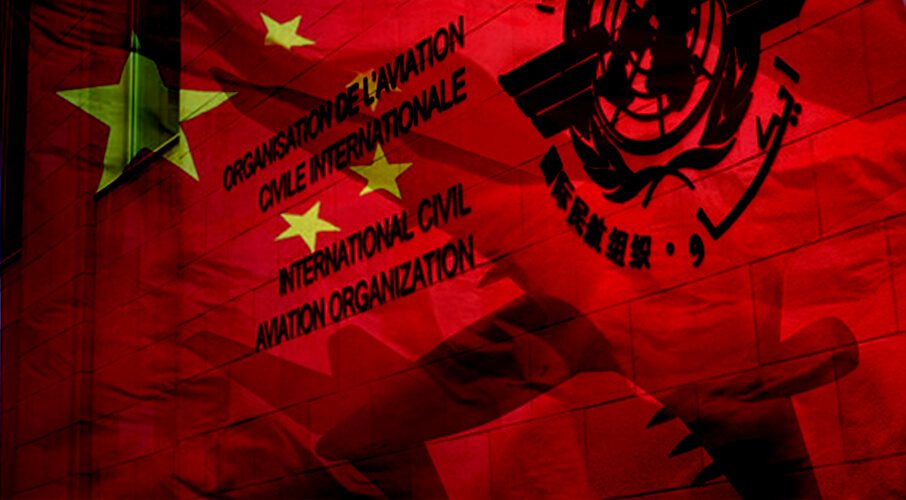 ICAO’s responses to a situation of its own making were self-contradictory, the accusations invidious, and the behaviour fell well short of what we should expect from a UN agency, writes J. Michael Cole.
ICAO’s responses to a situation of its own making were self-contradictory, the accusations invidious, and the behaviour fell well short of what we should expect from a UN agency, writes J. Michael Cole.
By J. Michael Cole, February 12, 2020
A recent controversy with the Montreal-based International Civil Aviation Organization (ICAO) amid a coronavirus (2019-nCoV) outbreak in China has once again raised questions on whether it is wise to exclude Taiwan from specialized UN agencies.
A U.S.-based academic reached out to ICAO on its social media asking whether the organization would share time-sensitive information with Taiwan due to the health emergency and its proximity to China. The country of 23.5 million people serves as an important transportation hub in the Asia Pacific, with several flights to China daily.
ICAO’s response was to block the account. As other academics and journalists learned of this development, they also reached out to ICAO and they, in turn, were blocked. The individuals in question, the ICAO communications unit claimed, had engaged in a campaign of disinformation, adding that “inaccurate, compromising or offensive material” would thenceforth result in blocked accounts.
At no point did the original academics refer to Taiwan being allowed to join the UN; the questions were technical in nature and pertained to whether alternative ways could be found to ensure that a dangerous blind spot in Asia could be plugged.
An ICAO communications officer later claimed that, “to the best of our understanding [information is] all being promptly shared by China with all of the applicable aviation stakeholders and officials in its sovereign territories.”
Two main problems with that contention stand out: for one thing, Taiwan isn’t a sovereign territory of the PRC; and as Taiwanese authorities confirmed, neither ICAO nor the WHO has been sharing information with Taiwan. Without doubt, and given the precedent set during the 2003 SARS crisis, it was clear that the agencies were acting thus due to pressure from Beijing.
ICAO’s contemptuous response would eventually result in the blocking of several dozens of accounts. Following reports in the media, the U.S. Department of State weighed in:
We call upon ICAO to immediately and permanently reverse its practice of blocking discussion of Taiwan on its Twitter properties and make clear publicly its understanding that freedom of expression must always supersede the political insecurities of member states.
Yet ICAO dug in its heels: “campaigners” and “advocates” were “spreading disinformation.” The ICAO even began claiming it hadn’t blocked anyone “for asking anything about anywhere” — note their refusal to use the terms “Taiwan” or “Chinese Taipei.” Those who claimed to have been blocked or asked for the reasons why others had been blocked were, in their view, contributing “to the spread of this misinformation.”
The academics and journalists who reached out to ICAO fully understood that ICAO’s hands are tied and that it would be invidious to expect the organization to go against UN’s 1971 resolution that stipulates the People’s Republic of China as “the only legitimate representative of China to the United Nations.” Instead, the academics only asked for alternative measures by which Taiwan could access information.
The communications team at ICAO behaved like someone who realizes he’s been caught. Overwhelmed, it engaged in damage control and sought to cover its tracks. As a result, the organization’s responses were self-contradictory, the accusations invidious, and the behaviour fell well short of what we should expect from a UN agency.
Another very high possibility is that ICAO’s comms officers aren’t fully cognizant of Beijing’s designs on Taiwan, the complex history that surrounds its claims, or China’s undue influence at the UN and its agencies, including ICAO (whose head is Fang Liu, formerly at the Civil Aviation Administration of China).
So, to use a rather impolite term, such individuals are “useful idiots” who are not necessarily bad intentioned — at least not initially — but who end up being complicit in Chinese Communist Party-style censorship.
This silly incident is emblematic of the deeper problems at the UN, where we have allowed an increasingly authoritarian regime to hijack international institutions. The coronavirus outbreak, like other health emergencies before it, raises the question of whether it is wise to stick to a UN resolution passed a half century ago, which clearly doesn’t reflect current global needs.
J. Michael Cole is a Taipei-based senior fellow with the Macdonald-Laurier Institute. He is a former analyst with the Canadian Security Intelligence Service in Ottawa.




